Environmental degrees

Become a leader in the global movement advocating for a greener, more sustainable world.
With one of Canada's first faculties dedicated specifically to the environment, Waterloo has been a leader in sustainability for decades. More than a dozen programs and an equal number of student groups provide a great education and the opportunity to make a hands-on difference.
Times Higher Education Impact Rankings 2025
Times Higher Education Impact Rankings 2025
Times Higher Education Impact Rankings 2025
Programs
With more than a dozen programs at Waterloo relating to the environment, how do you decide? The first step is to think what you're passionate about.
Are you interested in math and science? Perhaps an engineering or Bachelor of Science program is for you. Looking for flexibility and programs that allow you to branch off into several areas of study? Our Bachelor of Environmental Studies degrees may be perfect for you.
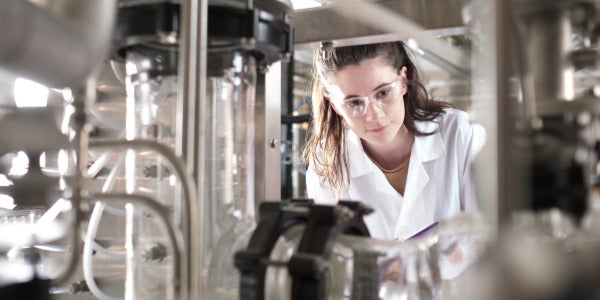
Chemical Engineering
Enhance your knowledge of physics, chemistry, biology, and math to transform raw materials into useful products.
Degree: Bachelor of Applied Science

Climate and Environmental Change
Gain deep knowledge of the climate system, the water cycle, ecosystems, and learn what we as individuals can do to respond to the climate crisis.
Degree: Bachelor of Science
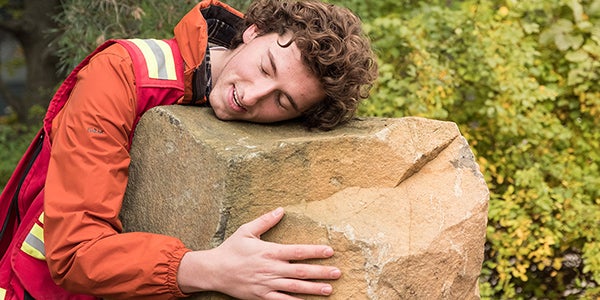
Earth Sciences
Learn about the fascinating world under your feet. Explore geology, geophysics, geochemistry, and hydrogeology through courses, field trips, and labs.
Degree: Bachelor of Science
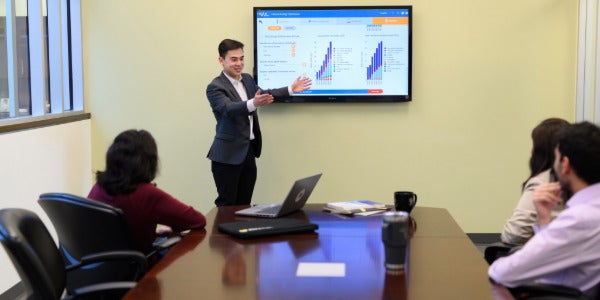
Environment and Business
Combine the foundations of a business degree with courses in economics, finance, and marketing with an environmental education including field ecology and geography.
Degree: Bachelor of Environmental Studies
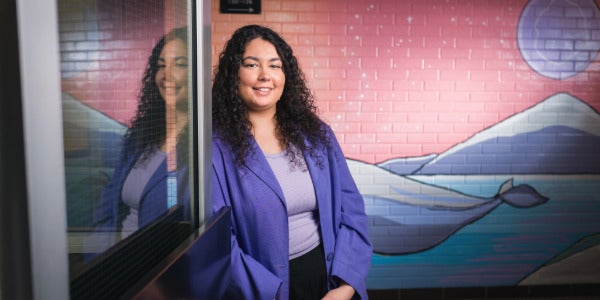
Environment, Resources and Sustainability
Use natural and social sciences to address challenges from food security to ecosystem conservation and restoration.
Degree: Bachelor of Environmental Studies
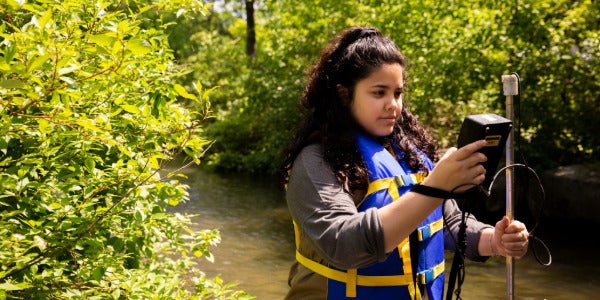
Environmental Engineering
Gain the skills needed to design smarter water treatment and distribution, clean contaminated soil, or even prevent E. coli outbreaks.
Degree: Bachelor of Applied Science
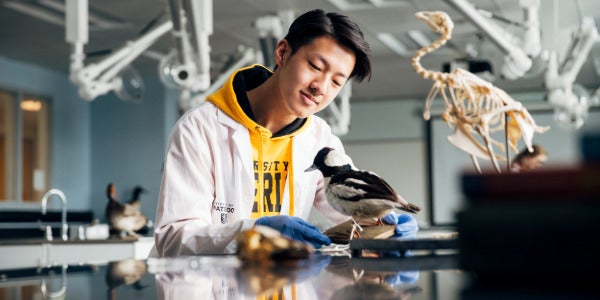
Environmental Sciences
Get a solid grounding in chemistry and biology and explore environment-related courses in ecology, aquatic ecosystems, geology, hydrology, and more.
Degree: Bachelor of Science

Geography and Aviation
Earn your degree while completing the flight training needed to acquire your commercial pilot licence, including multi-engine and instrument ratings.
Degree: Bachelor of Environmental Studies and your Commercial Pilot Licence
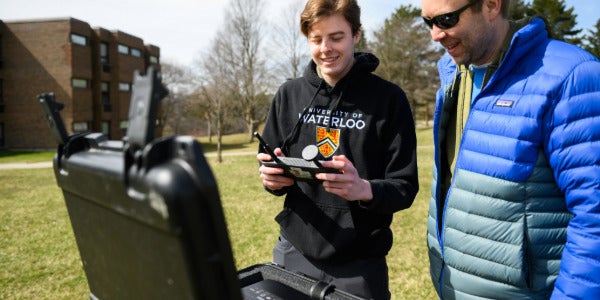
Geography and Environmental Management
Learn the advanced technical skills required to help solve today's most pressing issues, such as the impact of environment on health, water and land resource management, and urban development.
Degree: Bachelor of Environmental Studies
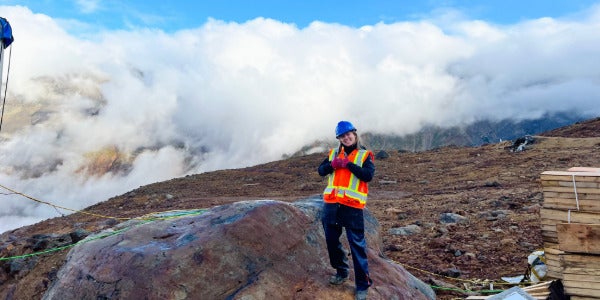
Geological Engineering
Merge geoscience with innovative design to engineer smart and sustainable solutions for natural hazards, infrastructure design, and natural resource development.
Degree: Bachelor of Applied Science

Geomatics
Combine computer science with geographic data analysis to devise data-driven solutions to complex problems, like mapping the response time of fire services and fire stations.
Degree: Bachelor of Environmental Studies
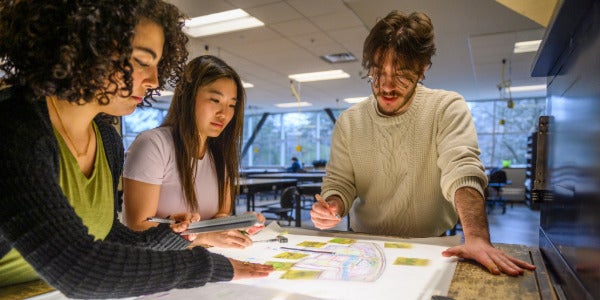
Planning
Tackle social, environmental, and economic challenges facing cities and rural areas. Manage the sustainable growth of communities, guide residential development, and design efficient transit networks.
Degree: Bachelor of Environmental Studies

Sustainability and Financial Management
Learn to incorporate people, profits, and the planet into the bottom line. Use environmental, social, and corporate governance to lead organizations toward a greener world.
Degree: Bachelor of Sustainability and Financial Management
Beyond the classroom
Meet others who share your passion
Become part of a community that's engaged in creating a more sustainable environment. More than a dozen student-run clubs include
- Alternative Fuels Team,
- Campus Compost, and
- Society for Ecological Restoration
Experience before you graduate
Gain paid co-op work experience in the environmental field as part of your degree. Co-op students have worked in positions such as
- Aquatic research technician
- Industrial wastewater engineer
- Species-at-risk research student assistant
Research
Attend events, learn from leading researchers, or even pursue further education with one of our research centres.
Sustainability at Waterloo
The Sustainability Office works to minimize our environmental footprint, focusing on education, innovative research, community engagement, and a sustainability strategy that aims to embed sustainable practices into campus culture.
Did you know?
Quick facts about Waterloo's environmental initiatives.
- Home to Canada’s largest faculty of environment.
- Committed to becoming a zero-waste campus by 2035 and carbon neutral by 2050.
- Designated as a Fair Trade Campus.
- Hosts an annual Eco Summit for the campus community to reflect on sustainability opportunities.
- Nearly 500 professors conduct research that advance the UN Sustainable Development Goals.
- Waterloo is the founding institution for Sustainable Development Solutions Canada, part of a global network of universities, colleges, and research centres that promote practical solutions for sustainable development.
- 85% of all janitorial cleaning supplies are eco-friendly.
- Waterloo is committed to reducing the carbon footprint of our pension and endowment investment portfolios by 50 per cent by 2030 and achieving full carbon neutrality by 2040.
Ready to learn more?
Ultimate guide to choosing a university
Learn more about Waterloo's commitment to creating a better environment on our sustainability website.
From the Missing Manual
If you’re in high school right now, chances are you’ve thought about how climate change and the environment will affect your life. Maybe you’ve even thought about making it your career. Read our article on...